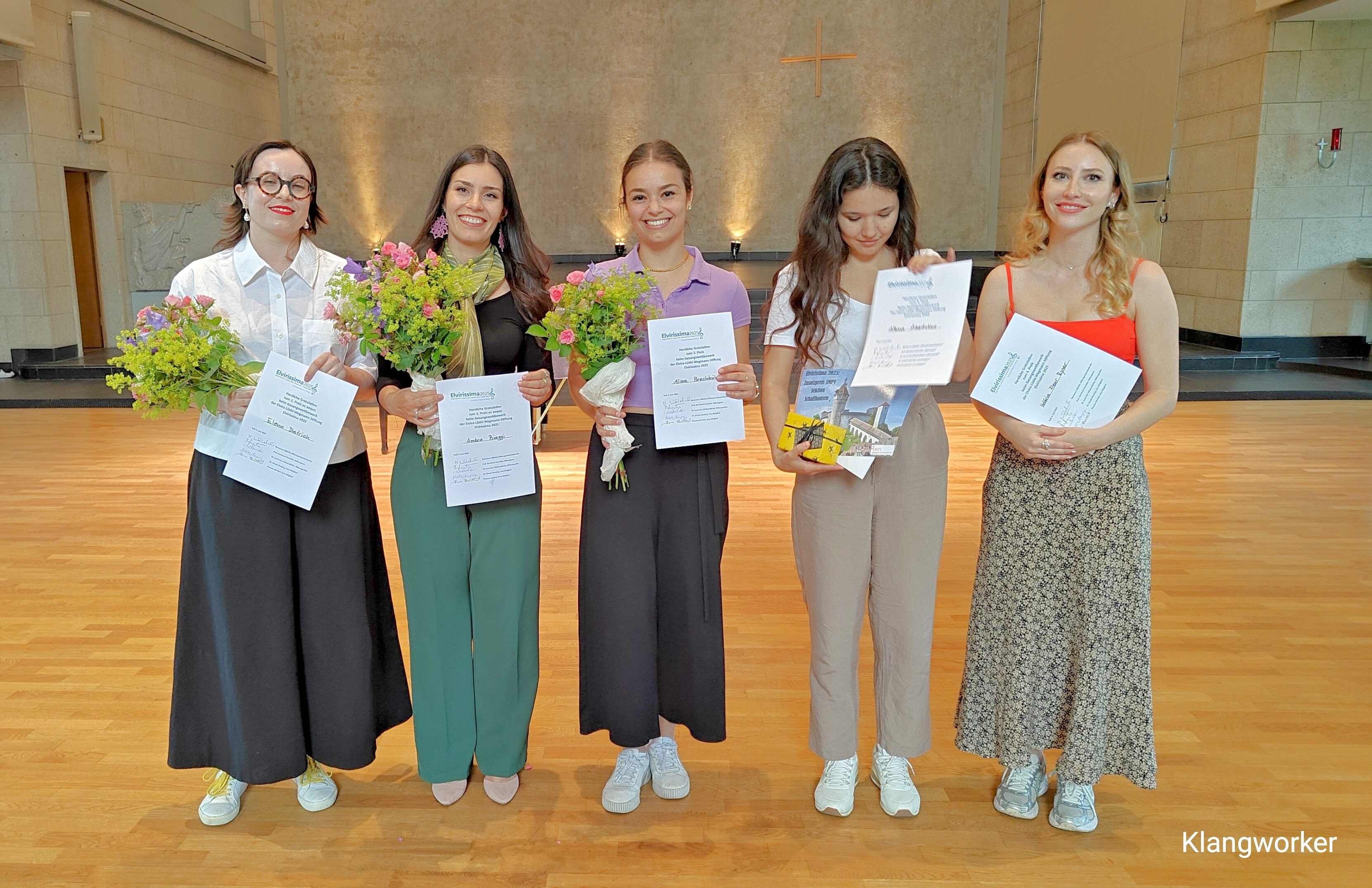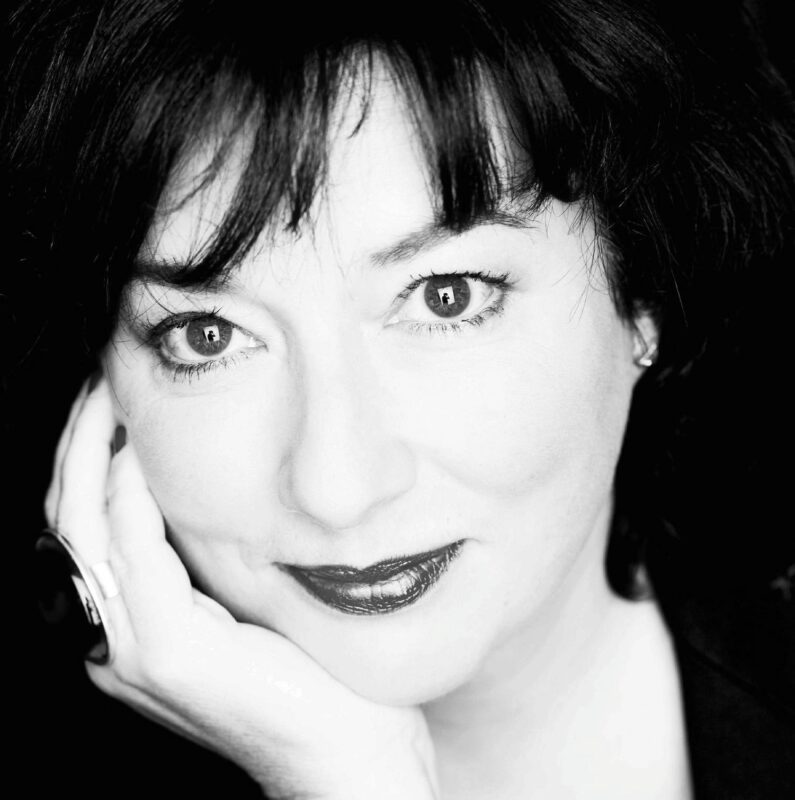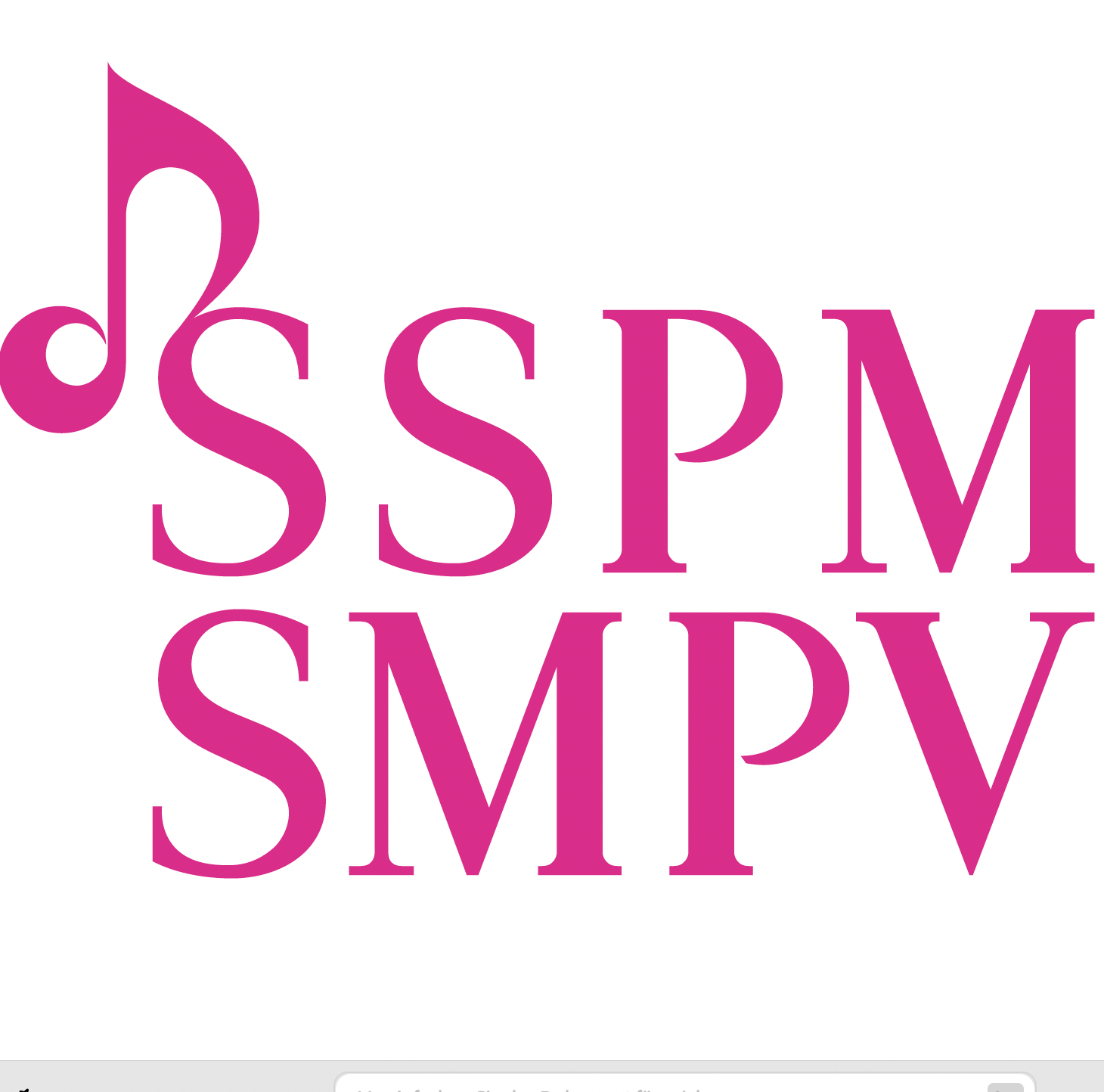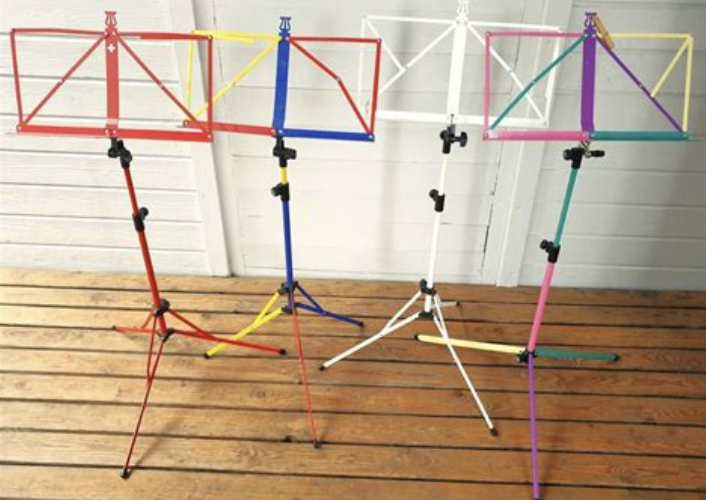Elvirissima 2025 singing competition
On Whit Monday, June 9, 2025, the Elvira Lüthi Wegmann Foundation's "Elvirissima 2025" singing competition took place at the MaiHof in Lucerne. After examining some twenty applications, the Foundation Board invited 17 candidates to audition in Lucerne.
When Elvira Lüthi-Wegmann made a generous bequest to the SSPM so that it could set up a foundation to support young singers in Switzerland, she could not have imagined that the Bologna reform would put an end to the SSPM's professional studies. She therefore stipulated that prizes could only be awarded to students of SSPM member professors. Today, we can still admit singers who are already members of the SSPM. But this often excludes performance students, as fewer and fewer university professors are members of the SSPM and therefore unable to send their students to the competition. What's more, membership of the SSPM requires a master's degree in pedagogy, and only students enrolled in a master's degree in pedagogy can be admitted as student members.
Perhaps because of this smaller circle of participants, both juries judged the level of the competition to be significantly lower than in previous editions. No first prize was awarded! But this may also be explained by the fact that no exceptional talent such as the formidable Chelsea Zurflüh (winner 2021) or the very talented Evan Gray (winner 2023) entered the competition.
A special feature of the 2025 competition was the presence of two juries, as the Schaffhausen section offered a special prize in the form of a concert, and Thomas Weiss, President of the SSPM Schaffhausen, accompanied by pianist Jean-Charles Reber and singer Daniela David, came as a second jury.
The main jury, which I chaired, was made up of Foundation Board members Lena-Lisa Wüstendörfer and Bernhard Hunziker, Lucerne Theatre Opera Director Ursula Benzing and Thomas Barthel, Deputy Director of Zurich's International Opera Studio.
It is reassuring, but also surprising, that the assessments of the two juries were largely concordant.
I talk to Thomas Weiss (Thomas) and Thomas Barthel (Tom) about Elvirissima 2025:
Dear Thomas, dear Tom, what impressions do you still have of Elvirissima 2025?
Tom Barthel: Unfortunately, I wasn't present in 2023, but I can clearly state that the technical level was much lower in 2025 than in 2021. Many had intonation problems, the technical basics were lacking and breathing wasn't working.
So you felt the same way? I was very disappointed this time. On my evaluation sheets, I noted for nine of the seventeen candidates: "Intonation is not optional!"
Thomas Weiss: I also found the technical basics lacking. But almost everyone was very committed to their performance and made up for their technical shortcomings with spectacular effects, which was very charming. As an impartial spectator, if I hadn't listened so carefully, I would have found a lot of things "rather nice".
Thomas Barthel: Yes, it was a weak year overall. I wonder whether this was due to the coronavirus pandemic. Five years ago, these singers started their studies or were in their first semesters. Perhaps that's why they lack the stability of serious basic training.
Thomas Weiss: I noticed an excessive nervousness and tension in many of them, manifested, for example, in casual hand gestures. And somehow, the joy of singing was missing.
Exactly, that's what bothered me most. I asked some of the candidates during the feedback: "Deep down, do you like singing?"
Thomas Barthel: This development is wrong. We've reached an impasse where showmanship is more important than technical basics, naturalness and artistic spontaneity. Teachers need to give clear instructions to get them out of this impasse!
Tom, you listen to a lot of singers of all nationalities when auditioning for the IOS (Internationales Opernstudio, Zurich Opera; editor's note). Is this a particular problem for Swiss singers?
Tom Barthel: Unfortunately, it's an international problem.
What advice would you give to young singers and their teachers?
Tom Barthel: They need to work better on the basics. They need confident intonation, clear vowels and perfect vocal balance. And I hope they'll have more patience! Today, everyone wants to succeed and be hired at 22 or 24, even if they don't have the basics. It's a very unhealthy development.
What do you think of the choice of program and "Fach"? During the feedback session, I pointed out to some that it wasn't a good idea to propose arias from very different registers for a competition, and I found that they had a surprisingly poor knowledge of literature and knew little about vocal registers.
Tom Barthel: At a competition or audition for an agency or theater, you clearly present yourself with a single Fach, even if you try out different roles as part of your development and training. The decisive factor is not whether you can sing an aria, but whether your voice can cover the orchestra in the strongest passages of the role to which the aria belongs.
We criticized a lot, but it wasn't all bad; we found five winners, and even though the differences in quality between the singers were smaller than in other years, the two juries came to very similar decisions independently of each other. Thomas, how did you make your choice?
Thomas Weiss: It was clear to us that we wanted two different vocal registers for the concert, otherwise we might have chosen the two mezzo-sopranos who won second prizes in the main competition. Secondly, expression was of course very important to us. And the two voices have to work well together.
Tom Barthel: What's there is vocal material and volume, even if this is often produced by force. And it was genuine musical expression that determined who we awarded the prizes to, wasn't it?
Absolutely, musicality and expression were the determining factors. Thank you for this interview!
And here's our wish for potential Elvirissima 2027 candidates: work on the technical basics, learn about the Fach, listen to lots of colleagues, discover wonderful music and let yourself be inspired without copying them. After all, the technical basics are just a means to an end: to convey musical expression in order to touch the audience (and sometimes a jury too).

Elena Dietrich, Ambra Biaggi, Aline Brechbühl, Albina Asadullina and Valérie Fleur Ryser
klangworker.ch
Elvirissima 2025 winners
Even if the jury wasn't entirely satisfied with the standard of Elvirissima 2025 and we didn't award first prize, this in no way diminishes the success of our five prizewinners. They honestly deserved the prizes we awarded them:
Ambra Biaggi (mezzo-soprano, 2nd prize ex aequo) won over the jury with her presence, expressiveness and confident style, while the jury praised the energy, courage of dynamic differentiation and great willingness to express of her mezzo-soprano colleague Elena Dietrich (2nd prize ex aequo). Aline Brechbühl, soprano (3rd prize), convinced the jury with her beautiful, warm timbre, expressiveness and brilliant high notes. Valérie Fleur Ryser (soprano, 4th prize ex aequo) scored points with her interpretation of the aria "Je veux vivre" from Juliette by Gounod and her fervent singing, while Albina Asadullina (soprano, 4th prize ex aequo) won over the jury with her gentle voice and sincere expression.
The special prize of the Schaffhausen section, in the form of a duo recital in Schaffhausen, was awarded to Elena Dietrich and Albina Asadullina.
Congratulations!








